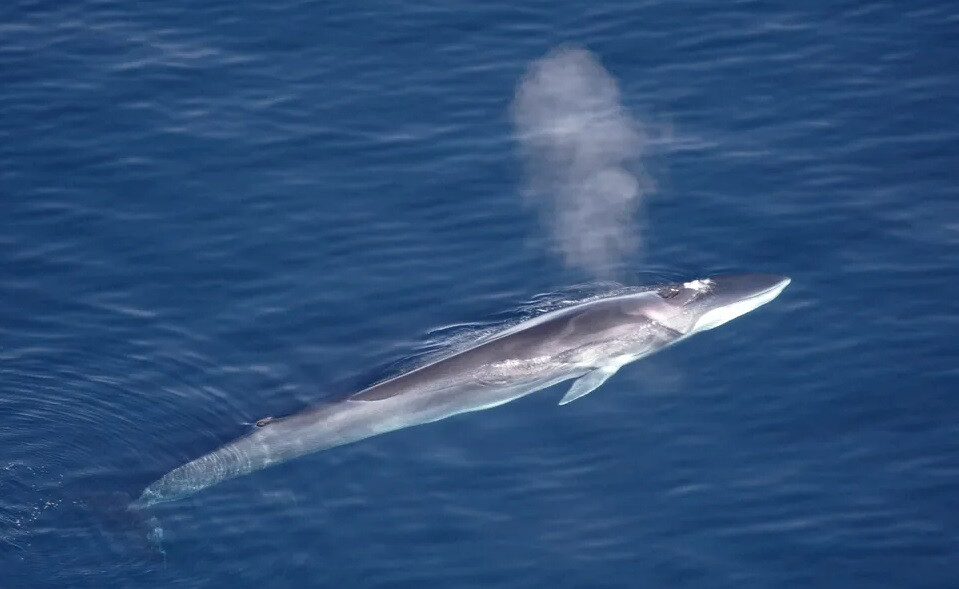
For decades, the East Sea, known in international circles as the Sea of Japan, has been a reliable backdrop for local fishing industries and a serene vacation spot. However, new and unprecedented observations are painting a different picture: the sea is now an unlikely destination for some of the ocean's most majestic creatures. This summer has seen a historic shift in marine life, with an endangered fin whale—an animal more commonly found in cooler, deep-sea habitats—spotted in its waters for the very first time.
The National Institute of Fisheries Science (NIFS) announced this week a finding that has stunned marine biologists. Aerial surveys conducted in August revealed six fin whales and eight minke whales, among a record-breaking total of 1,649 cetaceans from five different species. This mass gathering is the largest ever recorded in the East Sea and a clear sign of significant ecological changes. While a surge in the number of pilot whales—a species that prefers warmer waters—was somewhat expected due to the region's rising temperatures, the appearance of fin whales, which typically migrate to the North Pacific in the summer to feed, is a major anomaly.
Scientists are now grappling with what these sightings mean. The fin whale, a species second only to the blue whale in size, is a powerful indicator of the health of the marine ecosystem. Its unexpected presence could point to a number of factors. Researchers like Park Gyeom-jun from the NIFS Whale Research Center suggest the whales might be following vast schools of anchovies or krill that have moved into the East Sea. Alternatively, the sighting could simply reflect a global increase in fin whale populations.
However, a more unsettling hypothesis looms large: these giants may be climate refugees. The East Sea is on a fast track to becoming one of the world's most rapidly warming bodies of water. Over the last 56 years, its surface temperature has risen by 1.9°C, more than double the global average. This drastic warming is not only drawing new species but also displacing others and disrupting established food chains.
The fin whale sightings are just the latest in a series of dramatic shifts. Last month, local fishermen made a historic catch of over 1,300 large bluefin tuna—a subtropical species weighing over 100 kilograms each—off the coast of Gyeongbuk Province. Just as unsettling is the mass invasion of the small, subtropical blue jellyfish, which has appeared in unprecedented numbers along the southern and eastern coasts this summer. These incidents are a clear and present danger to the region's traditional fisheries and its delicate ecological balance.
The unexpected arrival of the fin whales is a powerful symbol. It serves as a stark reminder of the global climate crisis and its profound, tangible effects on marine ecosystems. The East Sea, once a stable environment for local marine life, is now in the midst of a radical transformation, its waters warmer, its inhabitants new and unexpected. This summer's sightings are more than a scientific curiosity; they are a clear sign that the impacts of climate change are no longer a distant threat, but a present reality reshaping our world from the depths of the ocean to the shores of our continents.
[Copyright (c) Global Economic Times. All Rights Reserved.]






























